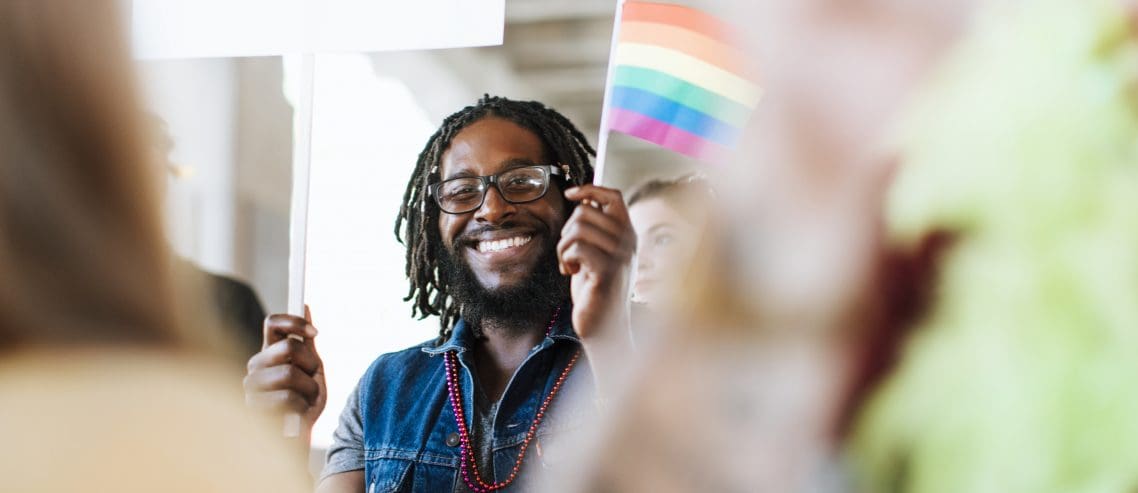Highlighting Black LGBTQ+ Youth Mental Health
As Black History Month continues, one of the main topics for discussion, especially regarding the current youth mental health crisis dominating the United States, is the position that black LGBTQ+ youths are faced with. This prominent sub-group of individuals belonging to two separate minority groups are facing afflictions with little to no adequate support or proper professional care.
To stress the need for proper care, representation, and resources among these individuals – as well as drive forth the efforts for acceptance – we should seek to understand certain stigmas and systems set in place that prevent it.
Acceptance of Black LGBTQ+ in Our Communities
The startling statistics regarding mental health issues for nonwhite LGBTQ++ are a clear sign that the acceptance of black LGBTQ+ youths in our communities is still a tall hill to climb. According to the Trevor Project, in the past year alone 44% of black LGBTQ+ youth reported seriously considering suicide, including 59% of black transgender and nonbinary youth. Further, 63% of black LGBTQ+ youth report symptoms of major depressive disorder including 71% of black transgender and nonbinary youth. Self-harm was reported in 44% of black LGBTQ+ youth, including 61% of black transgender and nonbinary youth.
Perhaps most alarming is that 49% of black LGBTQ+ youth reported wanting psychological or emotional counseling from a mental health professional in the past 12 months, but were not able to get it.
Stigmas of Being Black in the LGBTQ+ Community
As mentioned, particular stigmas have further driven these complications. Black LGBTQ+ youth hold multiple marginalized identities, and with that comes unique challenges and stressors. For these individuals, experiences of discrimination, stigma, and violence can compound and produce negative mental health outcomes.
The real problem lies in the severe lack of quantitative studies on black LGBTQ+ youth mental health, which directly limits the knowledge base necessary for effective prevention and intervention programs. Black youth counseling exists, but the means for accessibility is small for many. This can also be derived from a lack of acceptance of African American LGBTQ+ at home, due to poor support systems from family members and friends.
Time to Break the Stigmas
In order to understand the experiences of black LGBTQ+ youth in the United States, it’s paramount to acknowledge the impact of historical and present-day systems of oppression that have affected black individuals living in our country. It’s also important to understand how, until recently, the topic of intersectionality was not yet applied to such discussions. In turn, black LGBTQ+ youth often reported higher rates of poor mental health such as PTSD and chronic depression but were left with little to no resources necessary to address the issues pertaining to their position.
The best way to break the stigmas of being black in the LGBTQ+ community is to raise awareness toward the cause, providing black LGBTQ+ youth with the proper resources and options they need to seek out treatment. Identifying systemic racism in our healthcare systems is also needed in order to guide our youth toward sustainable mental health options for the future, because nobody should ever feel uncomfortable when looking for help.
Comprehensive Mental Health Services
At Retreat Behavioral Health, we’ve made it our mission to provide comprehensive and tailored mental health care services for any and all individuals, including our black LGBTQ+ youth. We are in full accordance with the need to properly break these stigmas, and provide our communities with the tools they need for a successful treatment.
Within our LGBTQ+ mental health services, we treat the root causes of complications faced by this community. We believe that no individual should be denied the therapeutic resources that could help save their life, thus we provide our patients with an expert team of mental health professionals to ensure proper and adequate black youth counseling.
For more information regarding our services and programs, or to schedule a consultation, please contact Retreat Behavioral Health today.




